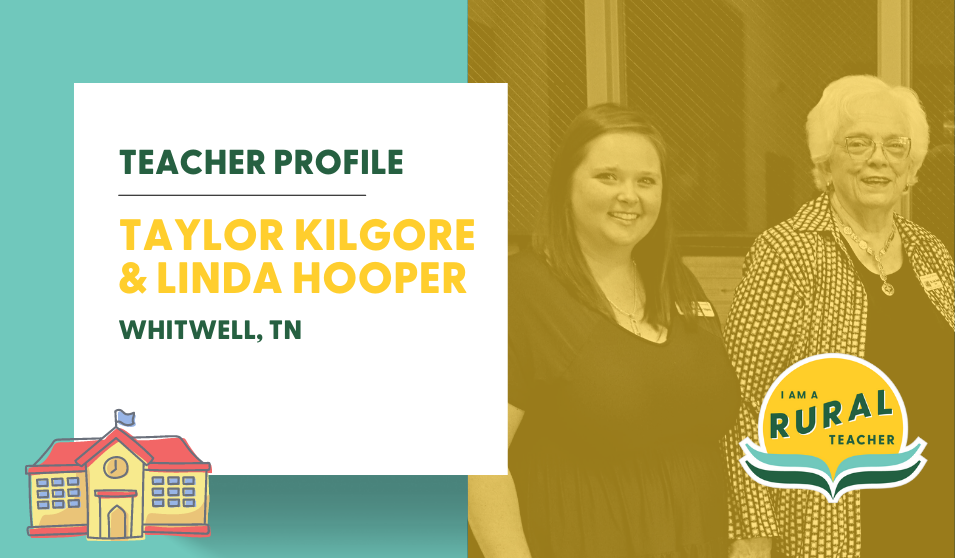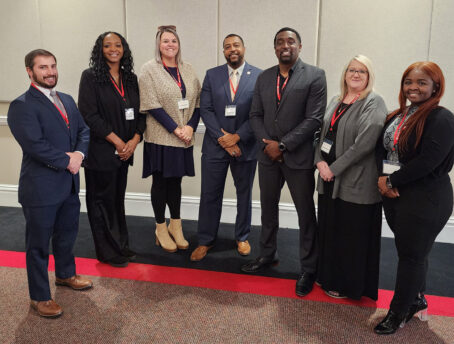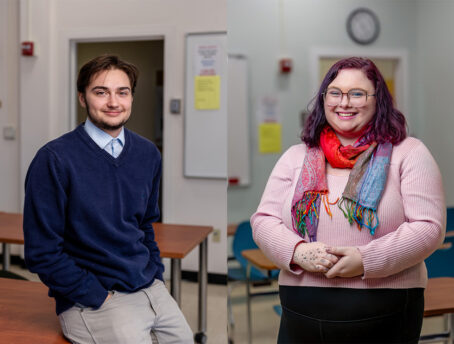RSC and NREA are excited to be able to continue sharing the stories of rural teachers from across the United States as part of our I Am A Rural Teacher collaboration, made possible by a grant from the Bill & Melinda Gates Foundation.
Content warning: Holocaust*
The bonds forged among people in rural places are often driven by how community members can relate to each other, and how they share something in common. However, rural schools can also create a fantastic environment for learning about other cultures in a real, one-on-one way.
Taylor Kilgore and Linda Hooper collaboratively run the renowned Paper Clips Project at Whitwell Middle School in rural Tennessee, which focuses on remembering and learning from the tragedy of the Holocaust. These two outstanding educators share how this project has not only been a classroom lesson for their students, but a medium for deeper understanding and connection between community members.
Both Taylor and Linda love living in rural Whitwell, and Taylor shares how her education journey led her back home.
Taylor: I actually am from here. I grew up in Whitwell, I have always been here, graduated from the high school. And so when I left to go to school - my mom is also a teacher, this is like year 36 for her, so I knew growing up that I wanted to be a teacher as well - I left, went to a small liberal arts school, got my degree in history and geography with my license to teach, taught at the high school out there where I graduated from, Cumberland, a couple of years, and then decided to come back home and i've been home ever since.
Linda also can’t imagine being anywhere else but a rural place, largely because of the ability to get hands-on with school and community projects.
Linda: I believe in, I love living in, rural communities. I believe that everybody should be involved. Nobody - you should never complain about anything that you've not spoken up about ,and that you've not tried to do something about. If you want something done, you go do it, and you find out who's in charge so that it can be done, and you have a plan. You know what it's going to cost, what it's going to benefit. I think that's really important to me. The most important thing about living is being involved wherever you are and whatever you're doing. Get involved!
Listen to the Full Story!
Listen to the full story on our I Am A Rural Teacher website.
We appreciate the willingness of teachers like Taylor and Linda to share their stories and experiences with us and hope these stories bring some inspiration to your day! If you would like to share 30 minutes of your time for an interview, please reach out to us at info@ruralschoolscollaborative.org.
*Rural Schools Collaborative seeks to provide truthful accounts of the lives of educators in rural places, and at times that means recognizing the hard realities they face along with the good work they do. Sharing stories of struggle and hardship underscores the imperative need to support our educators and schools as well as highlighting how they nevertheless are persisting to innovate and provide invaluable services to our children and communities. This is the bedrock of our mission to seek sustainable community development through a keen focus on educators, place, and philanthropy.




